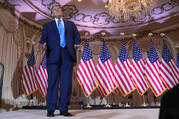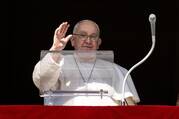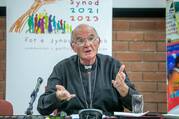Loading...
Click here if you don’t see subscription options
Click here if you don’t see subscription options

Politics & SocietyShort Take
Almost four out of five U.S. Catholics said they “have a moral responsibility” to combat climate change. But there are strong differences between Democrats and Republicans on environmental issues.

Politics & SocietyShort Take
Mother Cabrini became America’s first saint. But was she herself a legal U.S. immigrant? And would her story be possible today?

FaithPodcasts
“Jesuitical” visits long-time friend of the show, N.P.R.'s Scott Detrow, for a refreshing conversation about politics and faith as we gear up for November’s election.

Politics & SocietyDispatches
After France became the first country in the world to enshrine abortion as a “guaranteed freedom” into its constitution, pro-life leaders say they are mobilizing to counteract the unprecedented move.

Politics & SocietyEditorials
In a year that is supposedly a test of “small-d” democracy, the voice of the voters seems fainter than ever.

FaithNews
“I’m just curious,” sociologist Tricia Bruce told OSV News. “I come with questions. I don’t come with an agenda or something that I’m trying to do or get out of this.”

FaithPodcasts
Cardinal Arthur Roche leads the Vatican department responsible for governing the church’s liturgical practices and sacramental rites.

Politics & SocietyShort Take
Many in the Arab and Muslim communities are distressed that interfaith leaders and organizations seem unable to take a clear moral and ethical stand against the war on Gaza.

FaithNews
On Sunday, Pope Francis sent his greetings to all who will celebrate the Lunar New Year on Feb. 10 and invited everyone to pray for peace.

FaithDispatches
The spokesperson for the Southern African Catholic Bishops’ Conference said that the conference “has taken a slightly different stand from the rest of Africa” on the Vatican declaration “Fiducia Supplicans.”
